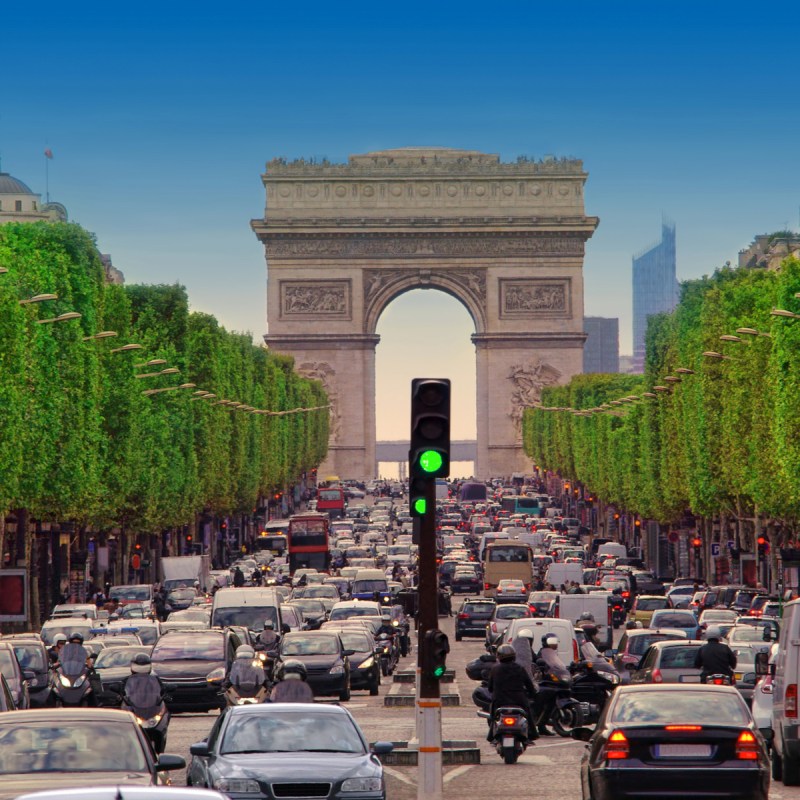
Paris is planning to ban private vehicles from the heart of the city by 2024 in an effort to reduce congestion and improve air quality in the French capital.
Videos by TravelAwaits
Mayor Anne Hidalgo had originally hoped for the ban to take place in 2022, but last week, she announced the new target date is 2024. The move will hopefully give the heart of the city some relief ahead of the Summer Olympics planned for Paris that year.
The move will not ban all traffic, but will stop cars that are simply driving through the area, which is about half of the vehicles in the region. Delivery drivers will still have access, as will people going to the district for shopping, the theater, restaurants, or visiting friends.
Deputy Mayor David Belliard told Bloomberg that the ban should take more than 100,000 vehicles off the roads each day.
City authorities say enforcement will be done with random spot checks of vehicles exiting the area, and heavy fines levied on those who had no specific purpose to be in the area.
“Paris will set up a quiet zone in the city center, where traffic will be rebalanced for the benefit of pedestrians, cyclists, and public transport users,” the city said in an official announcement. “This zone will see the light of day no later than the beginning of 2024.”
Paris is modeling its plan — known as a quiet zone, tranquil zone or calm zone — after other European cities such as Madrid, Milan, and Rome.
“This device makes it possible to reserve the road for pedestrians, bicycles, public transport, and certain categories of users (tradesmen, craftsmen, people with reduced mobility, etc.),” the city said.
The plan has been years in the making, with Hidalgo and other leaders pushing to reduce automobile use and make Paris a greener city.
Officials have already barred many diesel cars in the city, reduced car access on major roads, and expanded parks, green areas, and sidewalks in areas where vehicles once roamed.
The city has also installed numerous bike paths and bike lanes on roads to encourage people to get out of their cars and onto a green alternative.
Paris isn’t the only city actively trying to reduce vehicle traffic. Brussels passed a similar law this month, which will take effect in August.
The Brussels plan consists of one-way streets and limited-access zones to restrict access in the heart of the city. It is modeled after plans in several cities in the United Kingdom.
“With current circulation, there’s a lot of problems with road safety, with air purity and with noise,” said Bart Dhondt, an alderman for the Brussels council, according to Cycling Weekly. “What we’re aiming for is to create an accessible and attractive city for everyone: residents, tourists, and workers.”
